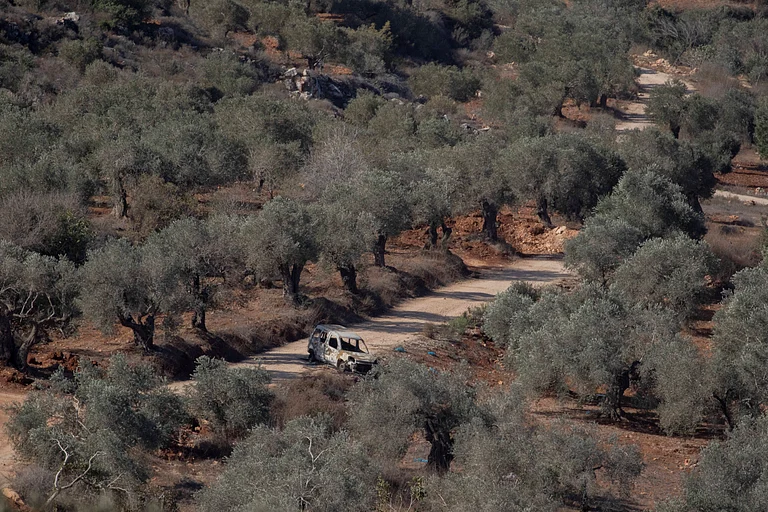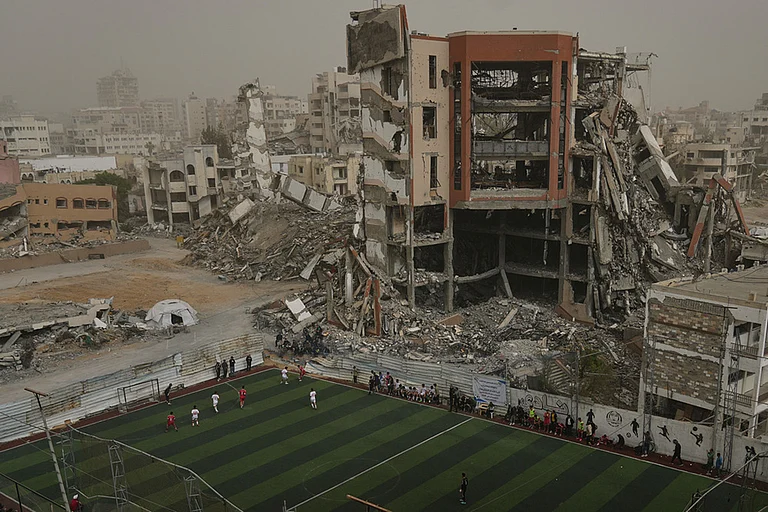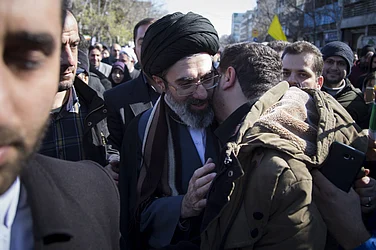The world hasn't seen anything like the unprecedented destruction of housing in Gaza since World War II, and it would take at least until 2040 to restore the homes devastated in Israel's bombing and ground offensive if the conflict ended today, the United Nations reported Thursday.
The UN assessment said the social and economic impact of the war launched after Hamas' surprise attack in southern Israel on October 7 has been increasing “in an exponential manner.”
It called the level of casualties – 5 per cent of Gaza's 2.3 million population -- “unprecedented” in such a short time. By mid-April, it said, over 33,000 Palestinians had been killed and more than 80,000 injured. About 7,000 others remain missing, most believed to be buried under the rubble.
Also Read:
“Every additional day that this war continues is exacting huge and compounding costs to Gazans and all Palestinians” said United Nations Development Program Administrator Achim Steiner.
The report by UNDP and the UN Economic Commission for Western Asia paints a dire picture of the struggle to survive in Gaza where 201,000 jobs have been lost since the war began and the economy contracted 81 per cent in the last quarter of 2023.
Abdallah Al Dardari, UNDP's regional director for Arab states, told a UN press conference launching the report that almost USD 50 billion in investments in Gaza are estimated to have been wiped out in the conflict, and 1.8 million Palestinians have fallen into poverty.
Gaza has been under blockade by Israel and Egypt since Hamas' 2007 takeover, putting tight controls on what enters and exits the territory. Even before the war, it faced “hyper-unemployment” of 45 per cent, reaching nearly 63 per cent among younger workers.
According to the report, the UN Human Development Index – which measures key issues for a long and healthy life, for gaining knowledge and for achieving a decent standard of living – has been pushed back more than 20 years in Gaza.
The “productive basis of the economy has been destroyed,” the report said, with sectors experiencing losses of more than 90 per cent. It estimated that the GDP of Gaza could decrease by 51 per cent in 2024.
“The scope and scale of damages have been unprecedented and still mounting as the war still rages on,” it said.
At least 370,000 housing units in Gaza have been damaged, including 79,000 destroyed completely, the report said, along with commercial buildings.
After previous Israel-Hamas conflicts, housing was rebuilt at a rate of 992 units a year, it said. Even if Israel allows a five-fold increase of construction material to enter Gaza, it would take until 2040 to rebuild the destroyed houses, without repairing the damaged ones.
Al Dardari said that after 51 days of fighting between Israel and Hamas in 2014 there were 2.4 million tonnes of debris in Gaza. In the current war, he said, there are already 37 tons of debris that need to be removed to make space for temporary shelters and other structures which are critical to return some sort of normalcy to Palestinians in Gaza.
“We haven't seen anything like this since 1945, since the Second World War — that intensity in such a short time, and the massive scale of destruction,” he said.
Al Dardari said the preliminary estimate of the cost of an early recovery program for three years, which would bring hundreds of thousands of Palestinians back to temporary shelters in their original locations with community support, is between USD 2 billion and USD 3 billion.
The rough estimate for the overall reconstruction of Gaza is between USD 40 billion and USD 50 billion, he said.
But Al Dardari stressed that the immediate focus now is on planning for early recovery.
He said the UN senior humanitarian and reconstruction coordinator for Gaza, Sigrid Kaag, and other officials met earlier Thursday with 22 UN agencies and went through plans by each one for the initial years after the war ends.
“We are on the verge of developing and finalizing a unified view and early recovery framework that is Palestinian-centred, Palestinian-led and owned by the Palestinian people,” Al Dardari said.























